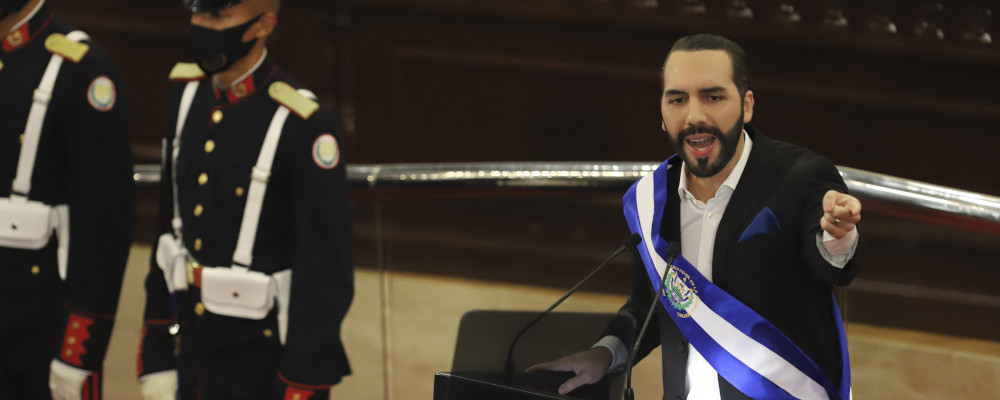There might not be any idea which better fits the zany ethos of the 2020-21 pandemic than the social media campaign to #CancelCanadaDay.
If ever there was a sign that we are spending too much time indoors away from genuine human contact, it is the idea that of all the countries in the world, Canada is the one with such an outrageous history of violence and oppression that we ought to cancel the annual national holiday.
Don’t get me wrong; the intentions are genuine.
The recent discovery of unmarked graves near a former residential school in Kamloops, quickly followed by another 751 unmarked graves at the site of the former Marieval Indian Residential School, is another reminder of the horrendous history of this institution and Canada’s policies towards Indigenous peoples. Too many families were torn apart, their children sent away to underfunded and criminally unsupervised institutions that simply did not care enough for those under their protection.
But it’s possible to deplore the legacy of residential schools and still be put off by the sickening glee with which some activists (and sadly, some actual historians) jumped on the news of the discovery to advance their pre-set ideological attack on Canada and the western world, and its values more generally.
What is so striking about the #CancelCanadaDay concept is its parochialism. This campaign, supposedly all about educating Canadians about the past, is itself rooted in an astounding ignorance of history and how Canada fits into wider patterns.
In the guise of ‘educating’ us about our past, a modern gang of obsessive moralists are cherry-picking their historical facts to achieve contemporary political goals.
It’s not only that we need to understand historical actors in their own context — although surely this matters too. Rather it is about what ought to be an obvious fact: that every nation has a history of practices and events which, by today’s standards, are enough to make any modern moralist wretch.
Alberta Premier Jason Kenney alluded to this when he defended Canada Day and spoke about people we now admire — like some of the Famous Five feminists who pushed for women’s equality and Tommy Douglas, the founder of Canadian health care — who were supporters of eugenics. Our progressive heroes, Kenney pointed out, were imbibing the same ideas as the literal Nazis, even if they stopped far short of where Hitler’s gang proceeded.
Yet Kenney didn’t go nearly far enough. Any good #CancelCanadaDay supporter would surely reply, “OK, let’s cancel them too.” Kenney mistakenly believed this was about partisanship. He seems to have thought that if we show that not only conservatives but also liberals and socialists were terrible, then you’d have to admit that this whole cancelling business had gone too far.
But the real point about the universality of historic horrors needs to be more expansive. It has to include literally everyone. And it cannot choose which culture to include or exclude in our cancellation.
Indigenous peoples themselves have histories of revolting actions and practices that would now be deemed “cancellable.”
How about, for example, the near-universal practice of raiding warfare in which the victorious party would capture women and children (after brutally torturing and killing the men) and then “adopt” the captives into the tribes and families of those who murdered their menfolk? This kind of warfare was common in almost all tribal cultures around the world, including in North America. In the 17th century, as disease devastated their populations, the Haudenosaunee Confederacy went on a series of devastating raiding wars which resulted in more than 60 per cent of their population being made up of these adopted captives.
This kind of action wasn’t caused by colonialism. Almost all tribal societies around the world were incredibly violent long before contact with Europeans. Modern estimates, based on archeological evidence, suggest that about a quarter of all people born in tribal societies died by violence. This is an astounding number. For example, in Europe and the United States, even during the period of the World Wars and the Holocaust, only about one per cent of the population died by violence.
Or how about slavery?
Over the last year and more we have heard a lot about the horrors of racialized chattel slavery. A number of activists have pointed out that Canada too had slavery, although they don’t usually point out that Canadian numbers were tiny in comparison to elsewhere in the Americas, or that Canada, as part of the British empire, ended slavery earlier than the United States (to say nothing of the Arab world, where it continued into the 20th century).
But few of the activists who want us to cancel our national holiday point out how extensive slavery was amongst the relatively rich Indigenous peoples of the Pacific Northwest where, unlike with the adopted war-captured slaves elsewhere, slaves inherited their inferior status. The most extensive slave-holding society in Canadian history was an Indigenous culture.
None of these examples should be taken as some kind of attack on Indigenous peoples.
Rather, they should be understood as pointing out something obvious to those who study history in an open-minded way: this is about the universality of acts which we now deem horrific, even amongst peoples who we now see as victims.
And there is no reason to stick with North America. What of the hordes of eunuchs who served in Middle Eastern empires? They too were often war-captured slaves who had their testicles (and sometimes more) lopped off and then were sent into service. It’s not a simple story, as some rose to prominence and lived rewarding lives. But certainly the process of gaining “consent” was not to our modern taste.
Or how about the poor Roman boy who had the misfortune of looking like the deceased wife of Roman emperor Nero? He was plucked off the street and turned into a new “bride” for Nero, only to be then captured and by a rival claimant to the imperial throne after Nero’s death. The past really is an odd and brutal place.
It’s not so much that the activists get the details wrong … . It’s what they leave out.
If we consider China (where, incidentally, eunuchs also played a large role) we find some useful parallels with Canada.
As in Canada, China experienced tumultuous civil wars and rebellions in the late 19th century. We have our Riel/Métis rebellions, they have their Taiping rebellions. But there is a difference both in scale — there were a lot more people in China and much more violence — but also in kind.
We now fret over whether Louis Riel had a fair trial or whether he was charged under the right law for treason. Or we wonder whether the Canadian troops who reached Red River in 1870 were too uncontrolled (they did beat up some people and killed at least one). But in China in the same period, one general who captured a rebellious region unceremoniously murdered 20,000 prisoners. Another general, on hearing that a nearby city had been captured by rebels, executed tens of thousands of suspected rebel sympathizers.
Meanwhile in Canada, we have a whole academic sub-genre that debates the morality of arresting a few hundred suspects in the wake of the 1970 October Crisis, when terrorists plucked a politician off his front lawn at gunpoint, then murdered him.
There is, it should be repeated over and over again, an astounding parochialism to the idea that Canada has such a brutal history — so out of line with the rest of the world, and even with the history of Indigenous peoples themselves — that we ought to hang our heads in shame.
This isn’t to suggest we should celebrate horrific actions or sweep them under the rug. Ideally, we’ll try to understand the past in all its complexity.
But this isn’t what’s happening. In the guise of “educating” us about our past, a modern gang of obsessive moralists are cherry-picking their historical facts to achieve contemporary political goals. They then depend upon the public not knowing enough about history, certainly about comparative history, in order to convince us that there is something so horrific here that we need to purify our public squares of statues, remove any historic “white man” names from our institutions, and now stop celebrating the nation altogether.
On its own, not knowing enough about history usually doesn’t matter.
Though it kills me as a historian to say it, you can walk blithely by a statue of Egerton Ryerson or John A. Macdonald for years without knowing much, if anything, about either man, and you’ll reach your destination just fine.
The problem in this case is that the selective historical moralizers are stoking up flames of resentment.
Symbolic politics are zero-sum. If you win, I lose. If the John A. Macdonald statue stays up, I feel like you’ve punched me in the face. If it goes down, you feel the same way. To a certain kind of progressive activist, this doesn’t matter. This is a moral issue. They seem to want to be punched in the face. It’s a modern version of hair shirts and self-flagellation.
But not everyone goes in for guilt-trip moralism and modern secular versions of original sin. Others will just see an attack on their history and themselves, even if it’s about statues they didn’t care about yesterday or about a national holiday that they only half-celebrate anyway. And they might notice that the history underlying this campaign is ideologically selective. It’s not so much that the activists get the details wrong (though this happens). It’s what they leave out. They pick sides. They attack. Some people’s wrongs are dredged up while the evils of others are left unspoken.
It doesn’t have to be this way.
The short-term solution, I hate to admit, is to stop talking about it altogether. Get on to more important problems, like improving the economic prospects and living conditions of Indigenous peoples across the country.
And then celebrate Canada Day just like any other year — enjoy the day off work and don’t think about Canadian history at all.
Recommended for You

Ginny Roth: J.D. Vance, Pierre Poilievre, and how they slice their economic pie

David Polansky: As President Biden leaves the race, will the Democratic Party hodgepodge hold?

RCMP spending to protect MPs may have risen 112% since 2018, as Canadian politicians face greater rise in threats

Peter Menzies: The mainstream media should love Doug Ford, now that he’s subsidizing them









